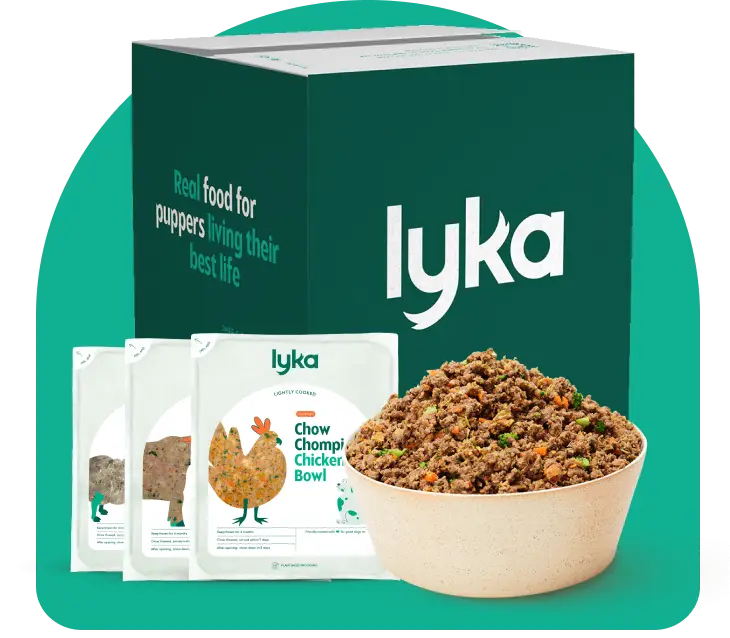The best way to get rid of your dog's poo

By Anna Podolsky

Here at Lyka, we usually discuss what your dog should eat. For this blog post, we are changing things up and will be approaching the other side of the equation. Yep, we will be talking about poop. Yilk!
An average dog produces over 100kg of poo per year. Considering the 5 million dogs in Australia, we are talking about 500,000 tons of poop produced per year, enough to fill over 50,000 garbage trucks! Aside from the high volume and odour, dog poo also contains bacteria and other pathogens that can contaminate our soil and water. When poo is not collected from the sidewalk or park, it can be washed away with the next rainfall and end up in our water system. Proper poo disposal is extremely important for our environment and health.
So what should we do with the poo? There is no simple answer to this question, however, some alternatives are certainly much better than others.
The most environmentally friendly method of poo disposal is using a pet waste compost, which completely decomposes poo in a safe manner. If you have a backyard, you can install your own. Bokashi offers complete self-installation composting systems, including one specifically designed for pet waste. There is also the option to DIY. Pet Haus has an excellent article on their blog, with explanations and pictures, to teach you how to do so.
For picking up poop while you are out and about, the good old poo bag is the most convenient solution. What you might not know is that not all bags are the same and they affect the environment in different ways.
There are three broad categories of poo bags:
Plastic
Usually made of HDPE, LDPE or PP (complex names for different types of plastic), these are the most common bags and the ones with largest environmental impact. They last 500-1,000 years in nature and when decomposing, they generate plastic dust (microparticles of plastic) that can cause further harm by invisibly contaminating our land, water and wildlife
OXO biodegradable
These bags are similar to plastic bags, with additional metal salts that help biodegradation. They degrade faster than plastic bags (usually between 6-18 months) but they have three key problems:
They are not fully compostable, still generating plastic dust
Their biodegradation requires oxygen, while landfills consist of huge piles of waste that do not let the lower layers “breath”, making this process longer
The added metal salts present a metal contamination risk
Due to these issues, there are discussions of banning these materials in several countries
Compostable bags
These bags differ from the other types because they are made of naturally compostable material (such as plant starch or PVA). They last considerably less in the environment and do not leave plastic dust behind once composted. Oh Crap makes PVA bags that are water-soluble and compost within 6 months, even in a landfill. Also, manufacturing these compostable materials has a much smaller environmental footprint than manufacturing plastic

So why are there so many brands claiming to sell biodegradable poo bags? Any material is biodegradable if you wait long enough (we are talking 500-1,000 years!). Truly biodegradable poo bags biodegrade within months and can be composted (i.e. do not turn into plastic dust).
Standards and labelling regulations have emerged to address the confusion around the word “biodegradable”. These standards include the ASTM D6400 (USA) and the EN 13432 (Europe). In Australia, we have the AS4736, which is based on the European standard. If a bag adheres to these standards (check on the manufacturer’s website), it is safe to assume it will compost within 6 months in a landfill. Certainly much better than taking several centuries!
Aside from using a pet compost or compostable poo bags, there is another way you can reduce your pup’s “environmental footprint”: feed them nutritional-dense wholefoods. Most commercial dog food, particularly dry food, contain a high proportion of grains, usually wheat, corn and rice, but also tapioca, oats and quinoa) that the dog’s digestive system cannot completely process. This translates to higher poo volume and nastier odour! By feeding your dog with better and fresher ingredients, you not only increase their overall well-being, but also reduce the amount of waste produced.
Smaller Poops = Happy Dog + Happy Owner + Happy Environment
Now For A Bit About Us:
We’re Lyka Pet Food and we’re on a mission to help puppers live their best life here in Australia. We create a joyful life for your dog through a custom plan of nutritious, fresh dog food, delivered to your front door.





